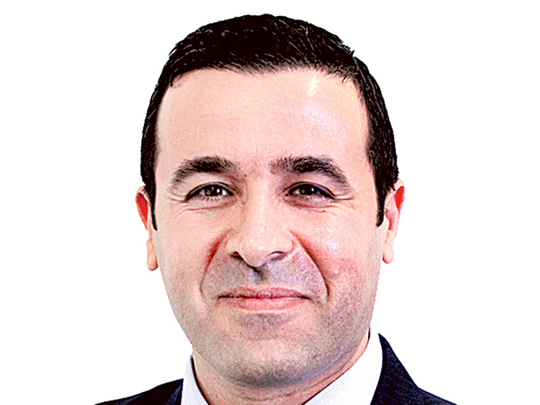
Abu Dhabi: Breast cancer may be a physical illness, but its effects always extend beyond physical discomfort into mental stress, depression and fear. Survivors told Gulf News that spousal support, as well as encouragement from other family members, is essential to fight the disease. Spouses, too, need to find ways to cope.
“My wife has been cancer-free for nearly 10 years, yet the disease is still a part of our lives. We choose to be positive, but can never forget,” Elias Tannous, 40, a Lebanese infection control specialist, told Gulf News.
His wife, Anne Marie, 48, was diagnosed with Stage 1 breast cancer shortly after the two returned from their honeymoon.
“Finding out that I had cancer was devastating. And for one moment, I felt like I was the only person in the room. But my husband reassured me instantly and was such a comfort. I remember being worried one day because I wanted to have kids, and I was afraid I wouldn’t be able to because of the cancer. My husband told me we could adopt, and that is exactly what I needed to hear right then,” she said.
Tannous himself remembers how hard it was to deal with the disease.
“After my wife’s biopsy, I received a life-changing call while at work. The doctor told me that the lump was cancerous, but that I should not tell my wife till we both saw her together the next day. I don’t know where I got the strength to keep the news to myself and even act normal during the longest night of my life. After all, we had just been married for a month and wanted to have children. Instead, we were had to put a hold on everything and work on an unexpected life-threatening disease,” he added.
Dr Susan Partridge, clinical psychologist and head of psychology at the American Centre for Psychiatry and Neurology, said the diagnosis of a life-threatening disease affects both patients and close family members.
“A family member’s psychological distress can be as severe as that of the patient. In fact, how a woman reacts will influence how their family reacts, and how the family reacts will impact the woman. Good communication is [therefore] an essential part of positive coping. Accepting that some parts of life will carry on as normal whilst others will need to change, is also a crucial step in accepting the reality of what is happening,” she added.
Eventually, Anne Marie who herself discovered the lump on her breast, had to have a lumpectomy, followed by daily radiotherapy for a month and hormone therapy afterwards. Tannous said he used writing and music to cope, and always worked to control any negative emotions.
“Fortunately, all this is now over and we have two beautiful children,” he added.
The couple now work with Active Life, a health and wellness initiative by The National Health Insurance Company (Daman), to spread positivity and offer support to other breast cancer patients.
Constant companionship certainly helps certain couples navigate the fight against cancer. For instance, Beverley Sutton, 49, an Emirati mother of four, said her husband accompanied her every day to radiotherapy, even though the sessions were a two-hour drive away.
“We made the trips every day for a month and a half, and the travel was horrendous. But my husband accompanied me, and stopped me from being negative in any way,” she said.
Other couples who’ve navigated breast cancer said they worked to find solutions that work for them.
Chris Holliday, 36, an American engineer, said he had to be away at work for many days at a time.
“I couldn’t be there myself, so my mother-in-law came over to stay with my wife. In the meantime, I called her every day to check on her, and kept telling her how beautiful she is,” he said.












